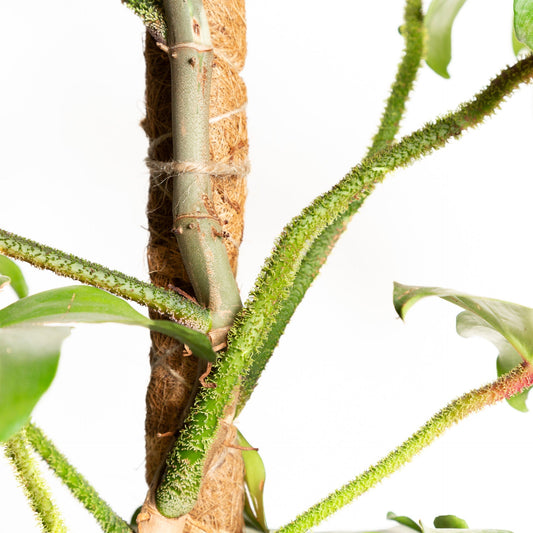We get it, the first time spotting bugs crawling around in your soil can be alarming. It's hard not to think you're about to face an infestation especially if there are more than a few. But, good news, most common soil-dwelling critters (including soil mites) are actually harmless if not beneficial to you and your potted plant pals!
Soil mites are insects that feed on decaying plant matter and can actually help you keep your plant in good health. Though it might look like a pest infestation, these mites will leave on their own once the soil dries out or the food (decayed roots) runs out and they may even be there to warn you that your plant needs some help and they'll do what they can to lend a hand.
Whether you're looking for solutions to cast out the mites, or you're looking to fuel your mite-curiosity we’ll cover all you need to know about soil mites here!
What are soil mites?
Soil mites are teeny tiny anthropoids that belong to THE biggest group of soil critters on Earth, Acari (spiders and scorpions also belong to this taxon). Also known as beetle, box, armored, seed or moss mites these guys can be found trundling through the bryophytes, fungal hyphae and leaf litter contributing to healthy soil ecology all over the world (even antarctica). They can be white or brown and have six itty bitty legs.
Soil mites hatch from tiny eggs and then turn into larvae which then develop into nymphs and then finally adult soil mites. It takes anywhere from a few months to a year for a mite to go from egg to adult depending on the climate and composition of the soil. They spend the majority of their lives residing in the top layer of soil.
Where do soil mites come from?
Soil mites are numerous and plentiful in ALL natural soil ecosystems so if your soil contains any compost or organic matter chances are they're already there. These little guys are attracted to decaying matter and will become more plentiful if there is extra food to be had. If your plant has recently been repotted or has experienced some kind of stress the mite population is more likely to increase to the point where you can see them. Just like most other creatures they are very good at tacking advantage of their environmental niches.
Can soil mites hurt my plants, or animals?
Mites are fantastic decomposers but they are only interested in non-viable plant tissue like decaying roots and leaves. They may also consume certain species of fungi, or algae and the remains of insects or worms. They are not at all interested in you, your pets, your plants' healthy tissue, or your furniture - promise!
In fact they are incredibly beneficial! Mites are an integral part of the soil food web and mesofauna, as well as playing an important role in decomposition, nutrient cycling, spreading beneficial bacteria and spores and aiding soil fertility.
If you don’t mind the appearance, keeping soil mites around can help your plant instead of damaging it.
Should I get rid of soil mites?
Soil mites can be extremely helpful for plants. Among other things, they break down matter to a point where plants can use the nutrients as fertilizer and are a natural defense mechanism for minor root stress and decay. If you're unbothered by their presence letting them be is best. However, if you have a fear of insects or are put off by their appearance, there are ways to get rid of or at least reduce the population to the point where you no longer see them.
How to get rid of soil mites
If you decide to get rid of soil mites, this section has you covered! There are some simple ways to reduce or eradicate the mite population in your soil.
- Diatomaceous Earth: Sprinkle into dry to damp soil and mix in. It's harmless to your plant and to animals but will take care of the mites. The powder is most effective when its dry so you may need to re-apply a few days after watering.
- Hydrogen Peroxide: Once the soil is dry the mites will normally go away on their own but if there are still some hanging around by then mix water and hydrogen peroxide at between 1:1 and 1:2 parts water to peroxide and use this mixture to water the soil. The peroxide won't hurt your plant but will dehydrate the mites.
Soil mites might get a bad rep for being unpleasant bugs crawling all over your plants. But it turns out that these tiny critters are more friend, than foe. Staying informed about the different types of pests bugs in your plants will benefit you on your journey to becoming the ultimate plant parent. If you want to learn more about plants, check out Planted Pot!



